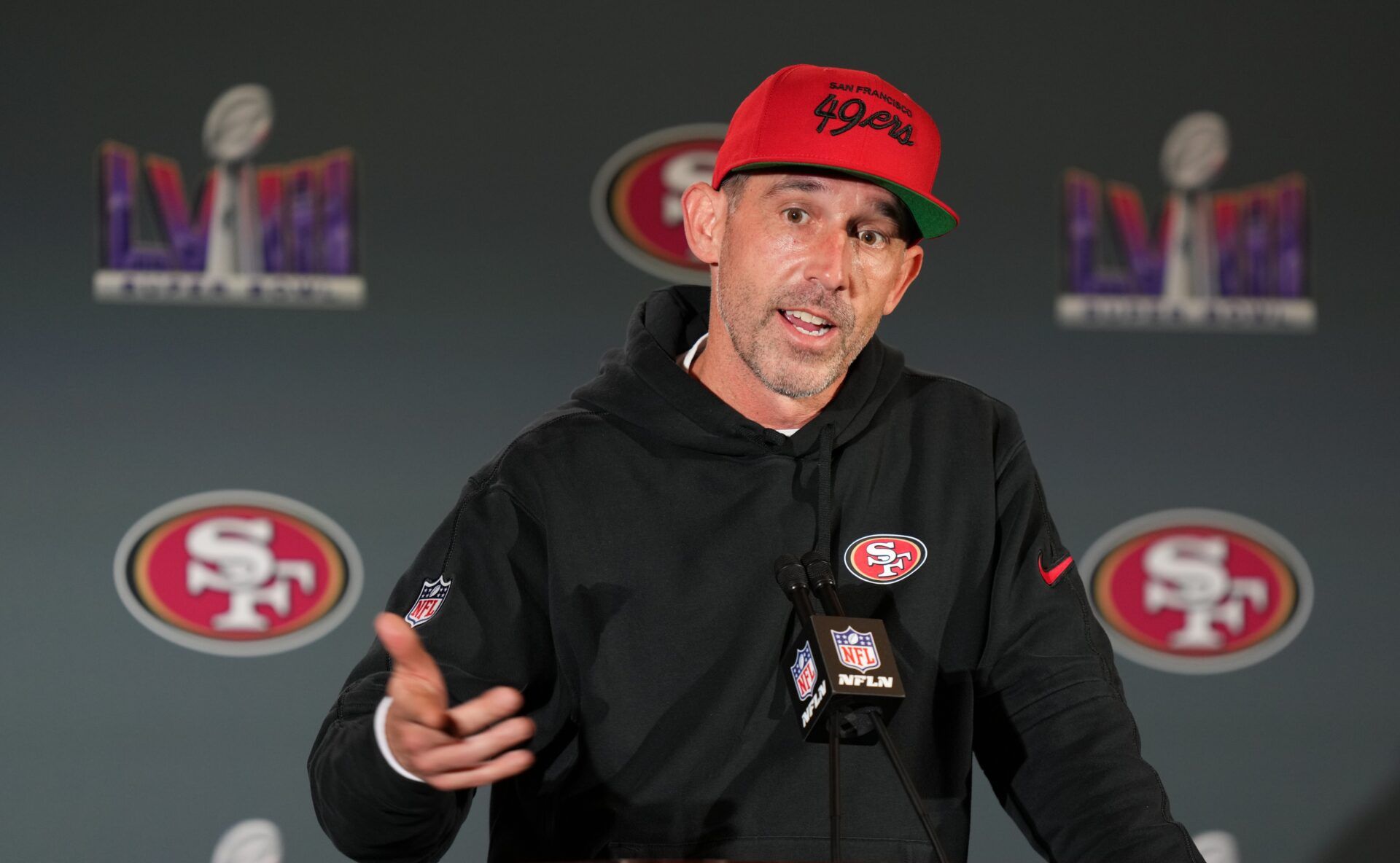LAS VEGAS — The Kansas City Chiefs won their third Super Bowl in five years on Sunday evening, but the San Francisco 49ers might’ve been tasked with the most significant decision during Super Bowl LVIII.
The 49ers’ loss came in just the second overtime Super Bowl period in NFL history. Before San Francisco gave up a game-winning touchdown pass from Patrick Mahomes to Mecole Hardman, head coach Kyle Shanahan had to decide how to navigate the league’s new playoff overtime rules.
Why the 49ers Elected To Receive the Ball First in Super Bowl Overtime
The NFL changed its playoff overtime regulation after the 2021-22 postseason — because of Mahomes.
After Mahomes and the Chiefs beat the Buffalo Bills in a Divisional Round overtime win, the league decided each team should have the opportunity to receive the ball at least once during overtime in the playoffs.
Sunday night’s game was the first playoff contest to head to overtime under the altered rules, so Shanahan was a guinea pig of sorts.
Why did the 49ers’ HC elect to receive instead of kick at the start of the extra period?
“It’s just something we talked about,” Shanahan said. “None of us had a ton of experience there. We looked at the analytics and talked to those guys, and we decided it would be better.
“We wanted the ball. If both teams matched and scored, we knew we’d still have a chance to get the ball back. We got that field goal, so we knew we had to hold them to at least a field goal. If we did, we felt it was in our hands.”
Receiving the ball first undoubtedly comes with some perks. As Shanahan explained, if both teams score and the game moves to a sudden death situation, the 49ers would have the first chance to score and end the game.
But kicking away would’ve given San Francisco an informational advantage. Shanahan and Co. would have known how many points the Chiefs had put up, setting a target for the 49ers to match or exceed.
Additionally, San Francisco could’ve been in trouble even if they’d scored a touchdown on their OT drive instead of kicking a field goal to go up 22-19.
Imagine the 49ers drove for an overtime-opening touchdown and kicked an extra point to lead 26-19. If Mahomes had led the Chiefs on a TD drive, Andy Reid might’ve chosen to go for a two-point conversion and end the game by gaining a mere two yards.
Like Shanahan, Reid and his staff had considered their overtime options before Super Bowl LVIII.
“That’s the value of (Chiefs statistical analysis coordinator) Mike Frazier,” Reid said. “He does a great job of that.”
Reid seemed to suggest that Kansas City would have elected to kick off had they won the OT coin toss, but the Chiefs didn’t have to make a decision.
“There’s two ways you can go to it,” Reid said. “You can kick it off, or you can receive it. And I’m not sure there’s a right answer necessarily. Ours ended up being the right one, but that easily could have gone the other way. That’s what we felt was the right thing to do.
“I’m never gonna question Kyle because he’s brilliant. That was just something now we chose.”
MORE: 49ers’ Arik Armstead Comes Clean on Super Bowl OT
The NFL may have struck a delicate balance with its changed overtime rules. Coaching staffs may have different opinions on how to handle OT — simply because kicking off and receiving both offer distinct advantages.
Miss football? The 2024 NFL Draft is almost here, boss. Pro Football Network has you covered with everything from team draft needs to the Top 100 prospects available. Plus, fire up PFN’s Mock Draft Simulator to put yourself in the general manager’s seat and make all the calls!

